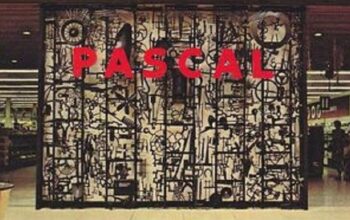Michael Franks – Rainy Night in Tokyo (1983)
I have to admit, I selected this song with extreme prejudice, and that prejudice was not born of any musicological qualification.
This song was lost to me for nearly four decades. I heard it once – once ever – in the mid-eighties (I remember the situation perfectly, but hazy on the exact year), and then never again, until just some months ago. A live video of it showed up in my Facebook video feed under some channel that I never explicitly subscribed to, but still get anyway. Hate that. I rarely ever tap on these, but on this day I did so reflexively, and purely by co-inky-dink, my normally-muted sound was unmuted.
Even with the advent of the .mp3 and its attending download technologies, three songs lay stuck in my memory that I could never find. I hadn’t heard them in over 20 years (in some cases much longer), I didn’t know any of the lyrics, and in one case, my only artifact was a vague memory of the instrumental texture and the song’s groove. Soundhound wasn’t built for that.
In 2015, I found that ‘texture’ song, quite fortuitously, on iTunes when I was playing the samples of Lighthouse‘s 1971 album One Fine Morning. When I’m on purpose in looking for something unspecific, I don’t tend to be exhaustive in my research. Like when I’m casing the joint on iTunes for example. I don’t usually play every 90-second sample in its entirety; I can’t get its story-arc in that span of time, and so I look for a good hook or a sweet harmony or a decent instrumental fabric. Basically, anything that might sound promising in 20 seconds or less. And as I work through the album samples, that 20 goes down to around 5 by the tenth song. So how lucky it was that, in just the second song in the lineup, just 10-ish seconds into the sample, I heard the ambling tempo, the harpsichordish keyboard, the tootling woodwinds theme, and then the lovely, textless, inimitable voices of this unjustly-forgotten band. Tears came instantly to my eyes. I was eight years old again, listening to my AM radio in my room. Little Kind Words was resurrected to me after more than 40 years.
Rainy Night in Tokyo is the second of those three ‘lost’ songs.
I’d only known Michael Franks by name, and that smooth jazz was his thing. Strikeonestriketwo. I don’t like to hate on whole genres, but smooth jazz just ain’t me. I always thought that if I started listening to it in earnest, I’d have to change the friends I hang out with and buy all kinds of robes and lotions and necklaces and Drakkar Noir. And I certainly can’t afford the car I’d now need to be driving.
So it’s a good thing that the present song starts with hookline right from the edge, and that said hook is only three seconds long, because that’s the longest I planned on listening when I tapped on that intrusive Facebook video. I tapped. Poof! I’m twenty-[sumthin] again.
That roughly three-second-long hookline is remarkable. It’s a simple formula, stated then repeated a tone lower over four square bars. It follows a pentatonic scale of familiar Japanese provenance, and the parallel-fourths smack of eastern homophony, even if a bit cliche. The syncopated rhythm provides the jazz element, and the juxtaposition of these two-hemisphere styles paint an evocative picture of an American in Tokyo. When you can nail that in one hook, you’ve got one serious piece of musical business.

The verses are clearly written chords-first – the melody is disjunct and tuneless – and is really just a conveyance to get us back to that glorious opening theme, which it does. But on its return, the hook is not alone. It brought a date… the vocal. Franks lays a lyric smack on top of the same melody of the hookline and sings it in measured unison with the guitars and keyboards.

Whyohwhyohwhy did he do this? And more importantly, whyohwhyohwhy did it actually work? This is, like, a cardinal no-no according to the Songwriting Centre of Excellence.
The hook isn’t just a musical chocolate eclair. It’s an attention-getter, to be sure, and a striking one at that. But because it’s so packed with extramusical innuendo, i.e., that east-meets-west motif that actually places our occidental narrator in his oriental Eden, the erotic bent of the song permits, nay, demands some lurid English to fill out the two-way aural pleasure. And just some clever melodic counterpoint won’t do it here: it needs to be that delicious hook. The opening three-second snippet is quite simply what this entire song is all about. That’s exactly how it gets away with a shitty verse and an even shittier bridge.
I’m so grateful to the inconsiderate putz who dumped this in my social media feed. This is an incredibly romantic, sultry, evocative piece of music, distilled in one brilliant musical germ-cell that I caught like a novel virus once upon a time. I heard it just once, and it stuck with me, note for note, for my entire adult life. I’m no expert, but isn’t that what a hook is supposed to do?
Two mysteries solved, one to go. What can I tell you about that third song? Last post in this series, promise…



